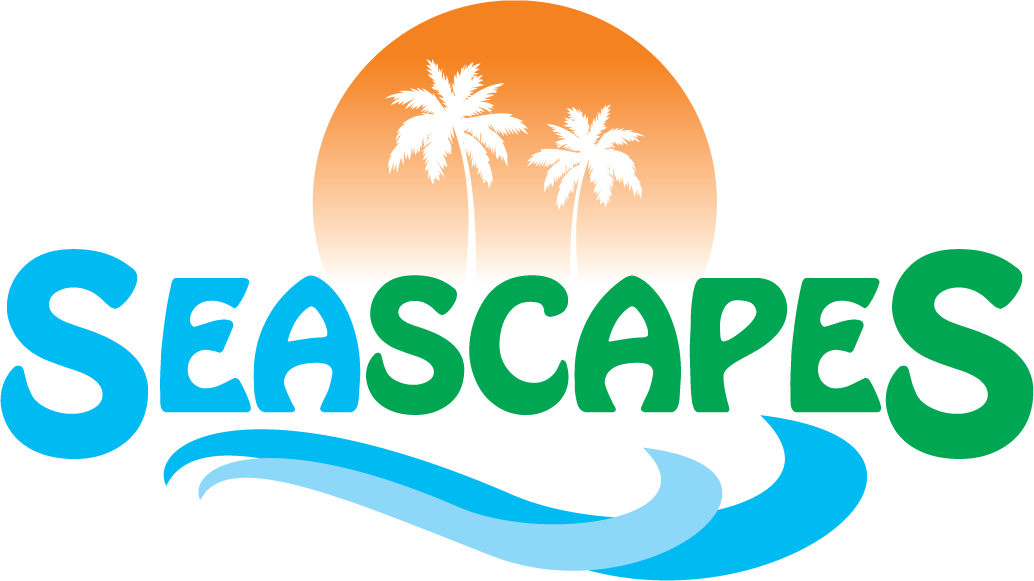October is STOP THE ANT Month
Here in Hawai’i, we all know how quickly invasive species can take over. Whether brought here intentionally for agricultural use or unintentionally, we need to be aware of potential threats to our delicate ecosystem. The Little Fire Ant, or LFA, is considered one of the world’s worst 100 invasive species. They are difficult to detect before they establish themselves and multiply quickly. LFA have no predators here in Hawai’i, making them able to invade houses, yards, agricultural fields, and forests at an alarming rate. These ants are a huge threat because once they reach high numbers, it is nearly impossible to avoid stings. Stop The Ant Month aims to educate and encourage residents to be aware of the threat of Little Fire Ants. If detected early, management and eradication are possible. That’s why it’s imperative that we all check our own properties to monitor their presence and treat any detected colonies.
Seascapes Nursery: A LFA Success Story
Last fall, LFA was detected here on the property at Seascapes Nursery. The Kaua’i Invasive Species Committee (KISC) performed a full-property survey and identified hot spots in the nursery where colonies of LFA were present. In response, the nursery decided to enforce a months-long, strict quarantine and testing protocol for all plants sold at the nursery. We worked closely with KISC to set up a treatment and monitoring plan to eradicate LFA from the property. These practices were not easy. We required that all plants purchased be held in quarantine and tested before being released, and we had to close early every month for treatments. Testing hundreds of individual plants every single day was no easy feat, but we felt a responsibility to our customers and our island to do the right thing and prevent further spread of LFA in our community. This protocol was entirely voluntary. We were not required by the state or KISC to even inform our customers that we had LFA on the property. This highlights a huge issue for our community, and should alert everyone to the possibility that plants sold anywhere could carry LFA.
Today, no LFA has been detected at Seascapes Nursery. KISC has performed multiple surveys since the beginning of our protocol, and no signs of LFA have been found since starting our rigorous treatment plan. We continue to quarantine and test all material brought into the nursery, even if grown here on Kaua’i, to ensure no LFA is reintroduced to the plants we sell to you. We owe our customers endless Mahalos for supporting us while we dealt with an unprecedented situation this past year. Mahalo for understanding when we explained the need to hold your plants in quarantine, mahalo for listening when we gave our endless speeches about the risk of LFA, and mahalo to everyone who took home testing kits and tested their own properties for LFA. We faced many challenges this past year, and we appreciate your continued support despite the inconveniences.
Although this outcome is a win for us, the battle isn’t over. LFA is still a huge threat to our island. Little Fire Ants are being detected across the island at an alarming rate. That is why it is crucial for everyone to test their properties, especially if you’ve had any recent landscaping work done. We encourage everyone to test their properties and send any ants resembling LFA to KISC for testing. It takes all of our cooperation to protect Kaua’i from invasive species, which is why we are proud to be a PONO-endorsed nursery. We encourage everyone to prioritize shopping from PONO retailers. You can find PONO growers on Kaua’i here.
How to Test for LFA
Use a wooden chopstick or stir stick and dip it in peanut butter
Place peanut butter sticks around your yard in shady areas or at the base of your plants
Leave sticks out for 45 minutes to 1 hour
Collect sticks and place in plastic bag
Freeze bag for 24 hours
Write your name, location, and phone number on bag, and mail or drop off at the KISC office
Testing kits are available here at the nursery. Ask our sales staff for one!
You can also get a testing kit from KISC: 7370 Kuamoo Rd, Wailua. 808-821-1490 or email kisc@hawaii.edu

